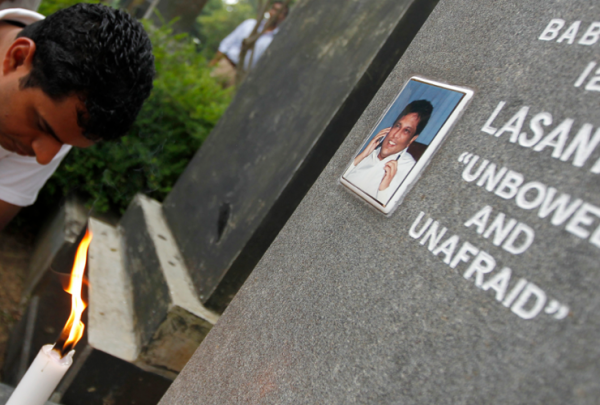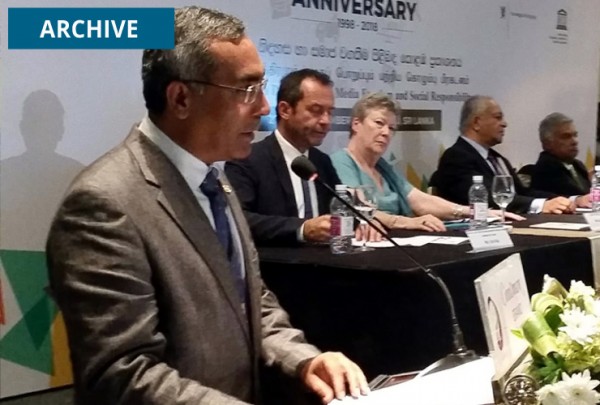H.E. Chandrika Bandaranaike Kumaratunga
President, Democratic Socialist Republic of Sri Lanka
Presidential Secretariat
Colombo-1
Sri Lanka
Fax: +94 1 333 703
Vienna, 11 November 2003
Your Excellency,
The International Press Institute, the global network of editors, leading journalists and media executives in over 120 countries, calls on you to turn state-controlled television in Sri Lanka into genuine public service broadcasters.
After reviewing the recent crisis in Sri Lanka that saw President Chandrika Kumaratunga remove the country’s Information Minister and dismiss the heads of state-controlled broadcasters, replacing them with her own supporters, IPI believes that new legislation should be passed in parliament creating public service broadcasters free of government influence.
According to information provided to IPI, President Kumaratunga removed all of the heads of the state broadcasters who were appointed after the United National Front government of Prime Minister Ranil Wickremesinghe came to power. For instance, the chairman of the Rupavahini Corporation and the Sri Lankan Broadcasting Corporation (SLBC), Dhammika Dissanayake, was removed and replaced by Harim Peries, President Kumaratunga’s media spokesman.
Similar changes were also made at the state-controlled Independent Television Network (ITN) where the chairman Guyrika Perusinghe was dismissed among others. The consequences of these drastic changes was that individual news bulletins on the state broadcasters lost their impartiality and started to report the crisis from the perspective of President Kumaratunga choosing to ignore statements sent by Prime Minister Ranil Wickremesinghe from the United States.
Bearing in mind the ease with which the reporting stances of state-controlled broadcasters were undermined, IPI is convinced that this is overwhelming evidence of a fundamental weakness in Sri Lankan broadcasting. Indeed, the fact that it was so easy for a member of the executive to dismiss staff and amend news is not only an indictment of the current system but proof that there is no protection guaranteeing the independence of these institutions.
Given the fact that the media undertake an essential role during times of crisis and national emergency, IPI believes that the failings of the state-controlled media in this present crisis should be used as the stimulus to encourage the renewal of broadcasting in Sri Lanka and the introduction of new legislation which turns these institutions into genuine public service broadcasters.
With the above in mind, IPI calls on Your Excellency to amend current legislation in line with international standards in this area and introduce new legislation, which turns state-controlled organisations into public service broadcasters and affords protection for these same media against the intrusion of the executive and legislative branches of government.
We thank you for your attention.
Yours sincerely,
Johann P. Fritz
Director


